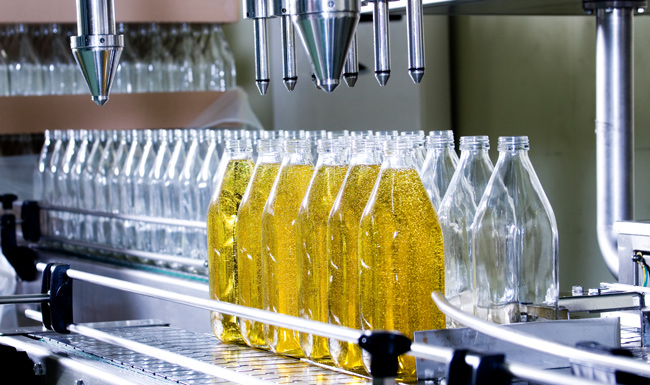
How Vendor Managed Inventory (VMI) Strengthens Supply Chain Resilience and Collaboration
To optimize inventory management, retailers and suppliers are increasingly turning to Vendor Managed Inventory (VMI) tools that transfer the responsibility…
Bona: Building Operational Excellence with Solochain WMS Read the use case

Automation in supply chains has been transformational, and technology solutions are invaluable in streamlining processes and improving productivity and efficiency.
With automation already playing such a vital role in the supply chain, up to and including in brick-and-mortar stores, the idea of whether the supply chain industry could become fully automated is no longer the realm of fantasy.
However, while technology can do remarkable things, and has already transformed the supply chain, the human touch remains central to warehouse and transportation operations. Success for the future will be built on the synergy between the human workforce and automated systems, on augmenting people’s abilities with technology, and on using it to remove barriers, rather than on a complete technology revolution.
Automation delivers extraordinary benefits in the distribution center (DC) and throughout the supply chain. Warehouse management systems allow companies to maximize the use of space, optimize resources with ordered pick slots, boost receipts and returns with more efficient availability updates, and track and trace orders from start to finish. A more streamlined, productive, and efficient warehouse using a WMS like SOLOCHAIN delivers benefits across the whole supply chain.
However, supply chain success still relies on people. A fully automated DC would neglect the simple fact that the human touch remains vital to efficiency and success, and solutions that ignore this usually fail to deliver the operational effectiveness they are supposed to.
Automated systems, however sophisticated, don’t run themselves. They still require people to run them, to ensure that they talk to each other properly, and to solve problems when they don’t. Machine learning allows systems to learn and adapt, but in times of great change, human management and intervention is still indispensable.
The combination of people and technology is where automation and software-driven systems are most powerful. For example, powerful automated systems can help with traceability and recalls by rapidly identifying batches at fault. However, it is up to management to manage the process, execute the recall, and manage the company’s reputation with customers and buyers.
Cameron’s Specialty Coffee manages every step of their coffee-making process through the WMS, from roasting and grinding to packaging and transportation. SOLOCHAIN lets them track how much coffee is roasted, what ingredients are required for each product, as well as tracking output quantity to see how many bags are produced during each roasted batch. It streamlines existing processes to create mobility in the warehouse, and significantly reduces waste of coffee beans by redirecting excess coffee to other relevant batches. Most importantly, it helps the employees themselves be more efficient, and provides valuable data that Management can use to fulfill customer compliance requirements.
“The WMS and MES systems through SOLOCHAIN are user-friendly and very customizable. In a dynamically changing company, the system has been able to change and grow with our needs. We have found efficiencies that have allowed us to grow with minimal additional head count. And when we do have new hires, the system is easy to train and empowers employees to confidently complete their jobs.”
Amy Fitzgerald, System Administrator Cameron’s Specialty Coffee
It isn’t really all that shocking to discover that automation on its own is not the answer to supply chain success. Technological augmentation of the workforce is not designed to replace workers, but rather to act as a catalyst for greater efficiency and productivity, to allow humans to do more with less, and to reduce the number of speed bumps, hurdles, and roadblocks that get in the way.
Automation in the DC is all about taking tasks that are repetitive and simple, and handing them off to machines. Tasks that need a lot of time but little creativity or thought. Allowing technology to take care of these ‘robotic’ tasks (for want of a better word) improves productivity, efficiency, and speed, and most importantly enables staff members to apply themselves to tasks that are a better fit for their skills, and that require the human touch.
After all, there are limitations to the capabilities of machines and artificial intelligence. Take speeding up the workflow, for example. By just focusing on one element (the speed of certain systems), all you do is create bottlenecks in other areas of the process. If all the systems aren’t optimized, and if your workforce can’t keep up with the speed of one aspect of the process, by making one element faster you actually slow down the overall operation.
Similarly, you can automate all the processes you want, but if political decisions at a national level make them obsolete, or international events have a significant impact on the overall supply chain process, then humans are once again vital to designing and implementing a workaround.
Learn more about SOLOCHAIN WMS
Generix Group provides a series of solutions within our Supply Chain Hub product suite to create efficiencies across an entire supply chain. Our solutions are in use around the world and our experience is second-to-none. We invite you to contact us to learn more.

To optimize inventory management, retailers and suppliers are increasingly turning to Vendor Managed Inventory (VMI) tools that transfer the responsibility…

In an ever-evolving logistics environment, agile and precise warehouse resource management is essential to remain competitive. With increasing volumes driven…

France’s electronic invoicing reform relies on a Y-architecture, where Partner Dematerialization Providers (PDPs) play a central role in issuing and…

Work with our team to build your ideal supply chain software stack and tailor it to your unique business needs.